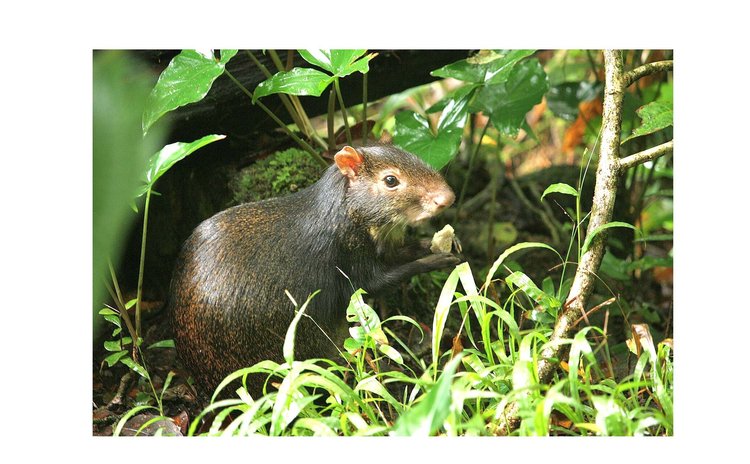Hunting Season 2023: Don't take more than you need

With the 2023 Hunting Season ending in less than two weeks, officials from the Forestry, Wildlife, and Parks Division are warning the public to refrain from overhunting the species approved for hunting.
"Don't go with the hope of taking more than what you need," cautioned Felix Eugene, an official of the National Parks section of the Division. "Be precise. If you are taking agouti or manicou, take a couple because we will have the hunting season again next year. Therefore, it is closed. We have to respect it."
This warning has several reasons, dating back to under ten years ago.
"We don't need a reminder that we went through Tropical Storm Erika and Hurricane Maria," expounded Assistant Forest Officer Jeanelle Brisbane. "Also, there are continued sudden landslide events and natural disasters. Our response, for conservation and protection of the wildlife, was to limit the hunting list to species we thought it appropriate to hunt."
First and foremost, this year and recent hunting seasons have been reduced by one month. Whereas in the past, licensed hunters had three months, from 1st October to 31st December, to roam specific areas of the land for exotic bushmeats, the Forestry Division has taken the uncompromising position to reduce this period by one month.
"You have to consider the number of years a species takes to recover, what was their population, how badly damaged that population was. These things combined with human activity, for example, we were dredging rivers, deforestation happening, etc. How does it affect the species, and what do we think is sustainable given the small island," Brisbane said.
When the season ran for three months, licensed hunters and licensed freshwater fishermen were allowed to hunt crabs and freshwater species (including crayfish, mullets, shrimps and freshwater crabs). Agouti, Manicou, and Rammier only.
Eugene revealed other factors that impact species populations in the wild.
"As we see climatic conditions changing, we see our landscape changing," he said. "For instance, black crab, we would appreciate that as the sea level rises, there is the need for protective barriers like gabion baskets, sea walls, etc. To breed, the crabs have to access the seashore, and when these structures are erected without vents for the crabs to access the sea, you will see the depletion in population."
The Forestry officials also shed light on other ways species' populations are impacted.
"There is also road kill," Eugene verified, "busses and cars crush the crab, manicou, and other wildlife crossing the road
This year, the season from 1st October to 30th November has also seen a reduction in the species approved for hunting.
"The species that can be hunted are land crab, agouti, and manicou," Brisbane clarified. "All species of birds are off limits, and freshwater fishing, any fish in land-based bodies of water, is closed. You are not allowed to fish because of dredging rivers and human action. The fish need a space to recuperate and recover," he said.
Eugene emphasized that the data collected from hunters is among the multitude of factors that inform the Division's decision on the parameters surrounding the hunting season.
"Data collection is critical", Eugene said. "When we interview those who get their hunting licenses annually, they would tell us if they noticed more or less of a species in a particular area. Their information will help shape our decision on what we approve to be hunted and how long the season should be opened."
The Forestry Division also conducts regular surveys using various visual and audio monitoring equipment during their work on the field.
The officials highlighted that education is vital in ensuring Dominica engages in proper conservation practices to preserve wildlife species for future generations.
"Forestry has done a lot of education over the years and is currently doing it, but we need to do more", Brisbane said. "As we see, things are changing, hence the need to intensify education."
The public is also reminded that hunting is prohibited in Dominica's Forest Reserves, National Parks, and other protected areas.




